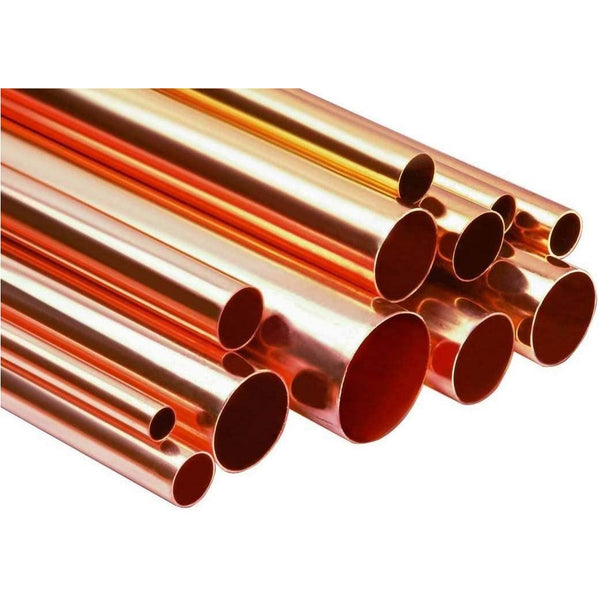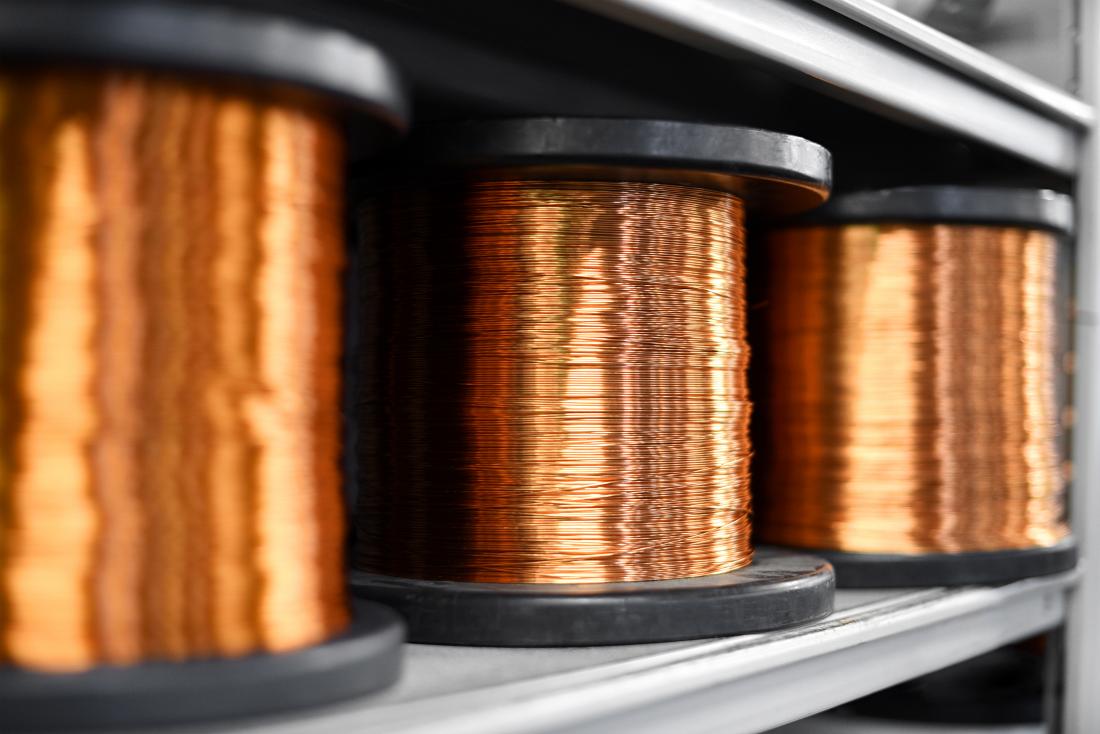Discovering the Diverse Applications of Copper Products in Modern Industries
From improving the performance of electric systems to playing an important duty in sustainable energy modern technologies, the flexibility of copper is noticeable. As industries progressively prioritize advancement and sustainability, the diverse applications of copper necessitate a closer examination, specifically regarding their prospective effect on future ecological techniques and technological advancements.
Electric Applications of Copper
Copper is an important material in the electrical market, representing about 60% of the total need for non-ferrous metals internationally - Copper Products. Its exceptional electric conductivity, which is almost twice that of light weight aluminum, makes it the favored selection for a variety of electric applications. From circuitry systems in household and industrial structures to high-voltage power transmission lines, copper makes certain performance and integrity in electrical energy shipment
Along with electrical wiring, copper is indispensable to the production of electric elements such as transformers, motors, and generators. These components utilize copper's thermal conductivity and pliability, crucial for warmth dissipation and reliable efficiency. In addition, copper's resistance to corrosion boosts the lifespan and durability of electrical systems, making it an affordable option in the long-term.
The growth of renewable energy resources, such as solar and wind power, has actually even more increased the need for copper in electric applications. As markets shift towards lasting energy options, copper's function comes to be much more crucial. Overall, the versatility and efficiency qualities of copper solidify its condition as a keystone product within the electrical industry, driving development and effectiveness across various applications.
Plumbing and Piping Solutions
In modern plumbing systems, the option of materials dramatically impacts both capability and durability. Copper has actually become a favored choice due to its distinct homes, including deterioration resistance and antimicrobial qualities. These characteristics make certain that copper piping continues to be long lasting and risk-free for moving drinkable water, an essential consideration in residential and business applications.
Among the essential advantages of copper in plumbing is its capacity to withstand heats and stress, making it ideal for a range of applications, from hot water systems to home heating and cooling down networks. In addition, copper's flexibility permits much easier installation in intricate piping designs, minimizing the threat of leakages and failures.
Another noteworthy advantage is copper's lengthy lifespan, commonly exceeding 50 years with correct upkeep. This long life not just decreases substitute costs yet additionally adds to sustainable techniques by lowering waste. Copper's recyclability straightens with modern ecological criteria, promoting a circular economic situation within the plumbing industry.
Copper in Renewable Energy
The versatility of copper expands past pipes applications, playing an important duty in the renewable resource industry. Its outstanding electric and thermal conductivity makes it a crucial material in the manufacturing and distribution of renewable resource resources, especially solar and wind power. In photovoltaic panels, copper is utilized in solar batteries and wiring, promoting efficient power conversion and transmission. Its resistance to rust makes certain durable performance, which is vital for optimizing power outcome in time.

Furthermore, as the global demand for electric lorries (EVs) boosts, copper's role in battery systems and billing framework becomes much more considerable. The product's capacity to carry out electrical power successfully is essential to the performance of EV batteries, enhancing range and billing rate.
Copper's Role in Electronics
Electronics making relies heavily on copper's outstanding properties, especially its high electric conductivity and thermal effectiveness. These qualities make copper a perfect option for a large range of electronic components, including adapters, motherboard, and circuitry. The metal's capability to effectively send electrical signals makes certain minimal energy loss, which is critical in high-performance electronic devices.
Additionally, copper's thermal conductivity plays a substantial duty in warmth dissipation, securing sensitive elements from overheating. This is specifically crucial in modern electronics, where portable styles result in raised warmth generation. Copper is also favored for its pliability and link ductility, enabling it to be quickly shaped into elaborate styles that satisfy the needs of innovative digital applications.
With the rise of consumer electronic devices, telecoms, and electric cars, the demand for copper in the electronics industry continues to grow. Thus, copper stays a foundation material in the ever-expanding area of electronic devices.
Cutting-edge Makes Use Of in Production

One remarkable application is in additive production, where copper-based products are used in 3D printing processes. This enables the development of complex geometries and light-weight elements, particularly in the aerospace and vehicle fields. Additionally, copper's thermal conductivity makes it an optimal choice for warmth exchangers, improving performance in commercial air conditioning systems.
Moreover, the rise of smart manufacturing has seen the unification of copper in IoT gadgets, where its conductive abilities support advanced noticing modern technologies. In the realm of renewable resource, copper is essential in the production of photovoltaic panels and wind generators, assisting in more effective energy conversion and circulation.
As industries pursue sustainability and innovation, copper's flexibility and efficiency remain to position it as an important material, driving innovations in production and adding to the advancement of smarter, a lot more effective products.
Final Thought
In summary, copper products show exceptional flexibility throughout numerous modern-day industries. Copper Products. Their superior conductivity boosts electrical applications, while deterioration resistance makes certain dependability in pipes. The essential function of copper in renewable resource and its crucial feature in electronics emphasize its relevance beforehand sustainable techniques. Furthermore, cutting-edge uses in producing emphasize copper's versatility and sustaining relevance. Collectively, these applications show copper's crucial payment to technological development and commercial effectiveness check this in contemporary culture.
From improving the efficiency of electrical systems to playing a vital role in renewable energy modern technologies, the flexibility of copper is obvious. As industries increasingly focus on development and sustainability, the varied applications of copper warrant a closer examination, specifically concerning their potential influence on future technical advancements and environmental methods.
The development of eco-friendly energy sources, such as solar and wind power, has actually even more boosted the need for copper in electrical applications. On the whole, the convenience and efficiency attributes of copper strengthen its condition as a cornerstone product within the electric market, driving advancement and effectiveness across numerous applications.
The convenience of copper prolongs beyond pipes applications, playing an important function see this page in the eco-friendly power market.